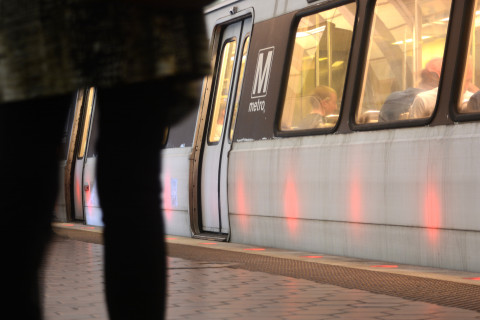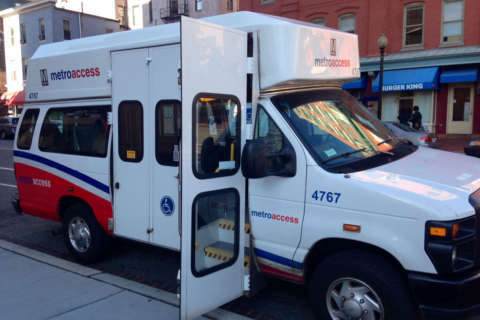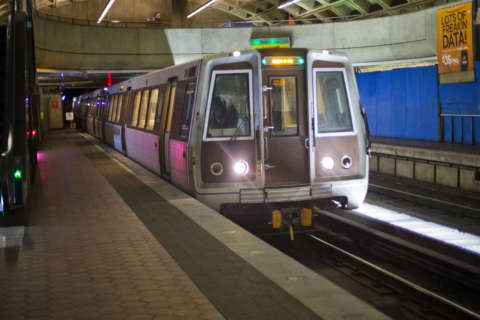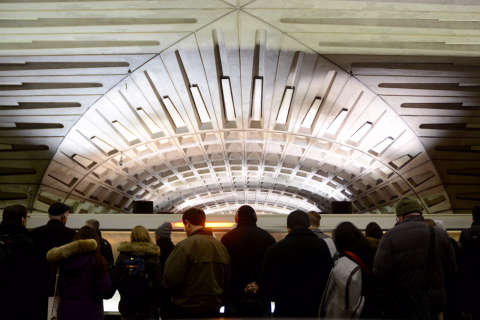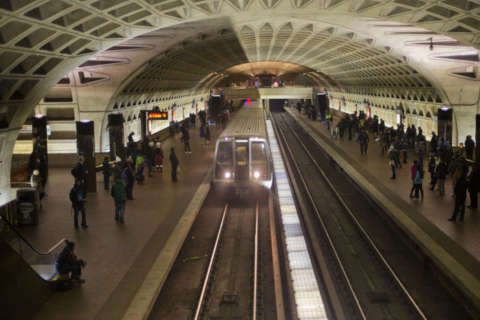WASHINGTON — Metro cannot make do with less this year, General Manager Paul Wiedefeld said Thursday, as he presented his budget proposal amid warnings from Maryland that there is no chance of a new dedicated tax for the system for at least another year.
“What I keep saying is that we will deliver that capital program. That capital program needs to be delivered to maintain a safe system,” Wiedefeld said after a Metro Board Finance Committee meeting.
He has asked for an increase of $165 million in local contributions for the fiscal year starting July 1 above the current fiscal year’s budget, which could especially strain local governments in Virginia who foot the bill.
In Maryland, the state pays. Maryland Metro Board member Michael Goldman said there is no chance of a new long-term Metro tax there until at least January 2019.
“In terms of a dedicated funding source in Maryland, that’s probably something that’s not going to happen until after the gubernatorial election next year,” Goldman said. “It’s simply not going to happen in time for us to adopt a budget for [fiscal 2019], which has to be done by March or at the latest in April, according to the general manager,” he said.
Several other Metro Board members pushed back on Goldman’s attempt to get the board to support Gov. Larry Hogan’s suggestion for a short-term funding patch of $125 million each from D.C., Maryland, Virginia and the federal government.
“His suggestion only gets us through three and a half years, and again kicks the can down the road,” said Metro Board Chairman and D.C. Councilmember Jack Evans. “It is a resolution that the District of Columbia 100 percent does not support.”
Evans and other D.C. leaders support a regionwide 1-cent sales tax. Virginia leaders who support dedicated funding have been trying to negotiate a more flexible option that each jurisdiction could select on its own.
Goldman hopes that as the local budget pressures become even clearer, more people will support Hogan’s suggestion for a patch.
“What’s that expression, that as you get closer to the hangman’s noose you begin to think more about life and eternity? I think people will recognize that the only viable solution out there, in the short term, to approve the capital funding budget for 2019 is the kind of proposal that Governor Hogan has put forward,” Goldman said.
Hogan’s suggestion, though, relies on the federal government also contributing an additional $125 million, which Goldman said could be tacked onto a continuing resolution.
“They won’t just write checks for the status quo,” federal Metro Board member David Horner said.
“I think the feds would be prepared to increase their funding of the system if they have confidence that the system is right-footed operationally and has adopted a sustainable operating model,” Horner said.
That would require less bickering on the Metro Board and major changes to how Metro operates, he suggested.
The request to the jurisdictions could be even higher than the $165 million in Wiedefeld’s initial proposal, since the budget plan does not include a number of expected costs, including any raises given as part of ongoing arbitration proceedings for thousands of workers who have been working without a contract for more than a year.
Another federal board member, Steve McMillin, said that ultimately the question of whether Metro can even maintain current service has much more to do with those off the board than those on it.
“We can approve the budget, but whether this budget can actually be executed is going to be determined in large part by people outside this room with powers that this board does not have — in particular the power to tax their local jurisdictions — and in certain cases as well in the hands of arbitrators and legislators who can give us a better ability to control our costs than we currently have,” he said.
McMillin suggested Wiedefeld explain how little Metro could do with current funding, to illustrate the agency’s needs.
Wiedefeld has declined to consider that as an option.
“We have asked, on the capital side, everything that we need that we can deliver in this upcoming fiscal year,” Wiedefeld said.
If funding falls short, it would be up to the Metro Board to wrestle with tough decisions.
“The capital budget reflects a safe system and building toward reliability, so we cannot back away from that; we’re not going to back away, obviously, from the safety side of it, and the reliability side of it just undermines the whole program,” Wiedefeld said. “We cannot back away from that.”

